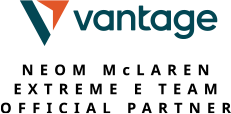There’s little question that AI-driven trading has brought about several advantages and benefits to traders. The ability to read massive amounts of data in real time, formulate a solution, and execute it accordingly – all within a fraction of a second – enables trading to be more efficient, accurate and adaptable than ever before.
Yet, the use of AI in trading has given rise to ethical concerns regarding access and equality. Instead of levelling the playing field, AI has the potential to create insurmountable advantages for those who use it, while denying opportunities to those who do not have access to the same algorithms or systems.
This, in turn, can potentially widen the wealth gap and further increase inequality – which can have undesirable effects on a population1.
Let’s take a deeper look at the promises and pitfalls of AI-driven trading, and where some potential solutions may lie.
Fairness and wealth distribution
Before we dive in, let’s discuss why fairness and wealth distribution is important.
While the causes are multi-faceted, wealth disparity and income inequality are universally acknowledged to be harmful. If left unchecked, they could lead to erosion of social cohesion, increased political polarisation, and ultimately lower economic growth2.
Over the past four decades, a broad trend of rising income inequality has been observed. Today, we are close to the peak levels of inequality observed in the early 20th Century, with the worst cases seen in most advanced economies and major emerging economies, which together account for about two-thirds of the world’s population and 85% of global GDP3.
Additionally, wealth inequality in countries is typically higher than income inequality. This has been exacerbated over the decades as higher wealth inequality feeds future higher income inequality, through capital income and inheritance4.
Trading and investing offers a credible way for investors to grow their wealth and potentially change their life circumstances. For every high-profile, successful investor like Warren Buffet, there are many more seemingly ordinary people – priests, janitors, teachers, etc – who’ve also invested their way to being millionaires on their own5.
Today, with online brokerages offering affordable access to the stock markets, it is easier than ever for anyone to invest and potentially benefit from market opportunities.
Are you ready to embark on your trading journey and harness the potential of today’s markets? Open a live account with Vantage today to experience a cutting-edge trading platform tailored to traders.
This widened access to investment opportunities should help moderate wealth inequality in a population. And with its ability to reduce errors, remove delays and lower costs, AI-trading should prove to be a potent tool in the worthy endeavour.
AI-trading may exacerbate wealth inequalities
In addressing wealth disparity, the rise of AI-trading can be an impactful development. But there are also some issues to consider.
AI-trading carries the risk of worsening wealth inequalities as its use becomes more widespread. This risk arises from a variety of reasons, including:
- Connectivity. AI-trading requires stable and fast online connections. Those that are unable to have high-speed internet will not be able to benefit from AI-trading to the same degree as those do.
- Access. AI-trading tools may be provided at different price points. Some brokerages may also offer AI-tools only to subscribers of premium services. This means that investors who don’t have the budget to pay for AI-trading are filtered out instead.
- Quality. AI-trading tools can vary in quality, with more capable ones often being more expensive. Investors of a lower wealth bracket may face limited choice in AI-trading tools.
- Data feeds. One crucial component of AI-trading is the data feed, which is the raw data that the algorithm reads and reacts to. Real-time data feeds can be highly expensive, and may be reserved only for institutional investors and hedge funds – these entities are able to command trading volumes that far outweigh what retail investors can muster.
Whether in combination or on their own, these factors can mean that even if AI-trading becomes commonplace, investors could still face an uneven playing field.
At the core of the matter, those who are richer and more able to afford higher quality AI-tools and richer, real-time data feeds will continue to enjoy advantages that keep them ahead of the rest.
Other ethical considerations in AI-trading
Market manipulation6
- AI-trading tools are designed to make extremely large volumes of trades at lightning-fast speeds. Thus, they are highly capable tools for market manipulation, creating artificial price movement which could harm other investors and destabilise markets.
- Even if not expressly programmed to do so, AI-trading bots have been shown to adopt market manipulation in order to bring about the best trading results.
Increased market volatility7
- Due to the speed at which AI-driven trading reacts to impactful events, AI-trading can amplify market volatility surrounding an unexpected development. In serious cases, AI-trading can even drive a flash crash in prices.
- Even more concerning, as more AI-trading tools become deployed in the markets, they can feed off each other’s actions – at speeds beyond human intervention – increasing the risk of market failure.
Lack of transparency and regulatory challenges
- AI-trading tools are becoming increasingly autonomous and capable of self-learning. This has led to an increase in unexpected conclusions which their creators may be unable to explain. Part of this occurring is because of the inscrutable nature of self-learning models that AI employs.
- Thus, AI-driven trading carries a lack of transparency that gives rise to regulatory challenges and subvert existing market abuse laws, which are based upon traditional liability concepts and tests such as “intent” and “causation”.
- In other words, the existing legal framework may not allow regulators to take an AI-trader to task, due to the inability to prove that the AI is intentionally manipulating the market.
Conclusion: Striking a balance between AI’s promises and its pitfalls
AI-trading isn’t exactly brand new. In fact, algorithmic trading has been in vogue since the early 2000s.
If the buzz around ChatGPT is anything to go by, AI will increasingly come to take centre stage in various use cases, including trading and investing.
As with any emerging technology, the rise of AI-trading brings with it exciting possibilities but also novel problems. The key is to strike a balance, such that we are able to enjoy its benefits, while avoiding the drawbacks.
More than any other, AI-trading has the potential to make a meaningful impact on wealth inequality around the world.
Facilitating widespread, equal access to AI-trading tools of similar quality and comparable capabilities may prove to be instrumental in reducing the wealth gap within and among societies across the world.
The landscape of trading is evolving rapidly with the rise of AI, and the opportunities are vast. Ensure you’re at the forefront of this revolution. Open a live account with Vantage and start trading with a broker that understands the intricacies of trading and continually innovates to address the demands and opportunities presented by the AI-driven trading era.
References
- “Inequality – International Monetary Fund”. https://www.imf.org/en/Topics/Inequality. Accessed 11 Sept 2023.
- “Inequality – International Monetary Fund”. https://www.imf.org/en/Topics/Inequality. Accessed 11 Sept 2023.
- “Rising inequality: A Major Issue Of Our Time – Brookings Institution”. https://www.brookings.edu/articles/rising-inequality-a-major-issue-of-our-time/. Accessed 11 Sept 2023.
- “Rising inequality: A Major Issue Of Our Time – Brookings Institution”. https://www.brookings.edu/articles/rising-inequality-a-major-issue-of-our-time/. Accessed 11 Sept 2023.
- “Ordinary People, Extraordinary Wealth – The Motley Fool”. https://www.fool.com/retirement/general/2009/11/04/ordinary-people-extraordinary-wealth.aspx. Accessed 11 Sept 2023.
- “Can an AI perform market manipulation at its own discretion? – IEEE Explore”. https://ieeexplore.ieee.org/document/9308349. Accessed 11 Sept 2023.
- “Will ChatGPT-powered Wall Street end in disaster? – Fortune”. https://fortune.com/2023/05/18/how-will-ai-chatgpt-change-stock-markets-high-frequency-trading-crashes/. Accessed 11 Sept 2023.
Disclaimer: The material provided here has not been prepared in accordance with legal requirements designed to promote the independence of investment research and as such is considered to be a marketing communication. Whilst it is not subject to any prohibition on dealing ahead of the dissemination of investment research we will not seek to take any advantage before providing it to our client. No representation or warranty is given as to the accuracy or completeness of this information and therefore it shouldn't be relied upon as such. Any research provided does not have regard to specific financial situations, needs or investment objectives. Vantage accepts no responsibility for any use that may be made of these comments and for any consequences that result. Consequently, any person acting on it does so entirely at their own risk. We advise any readers of this material to seek professional advice where necessary. Without the approval of Vantage, reproduction or redistribution of this information isn't permitted.




